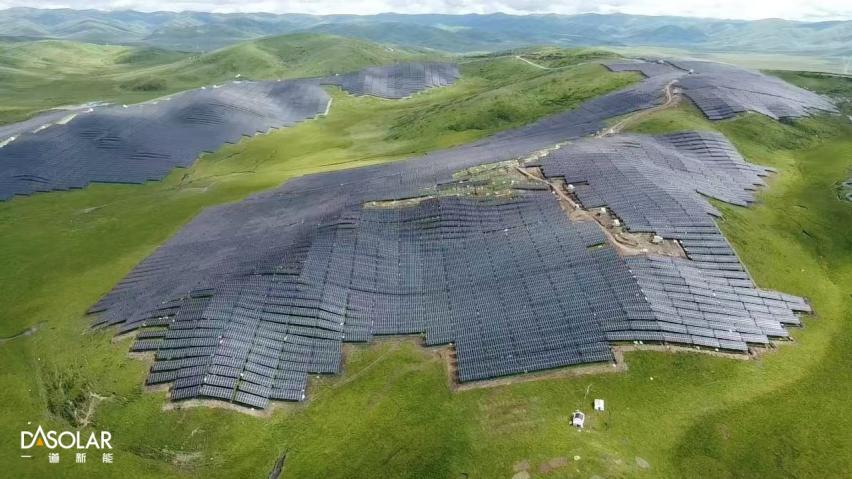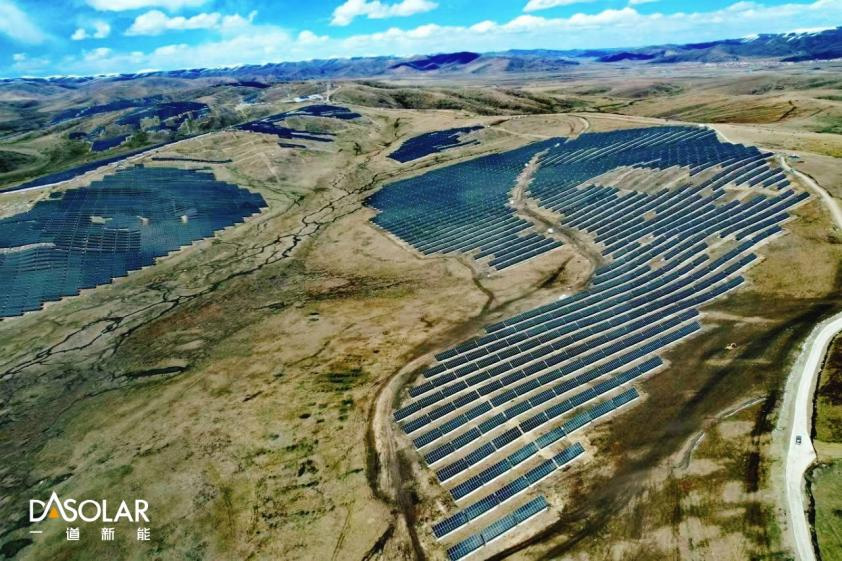DAS Solar Delivers High-efficiency Modules on the Western Sichuan Plateau
2024-09-04
The Ngawa county Chali Township PV project is jointly developed by DAS Solar and China Three Gorges Corporation, marks the first high-altitude PV project at 3,600 meters in the Ngawa county. Situated at an elevation of 3,620 to 3,760 meters, where the provinces of Sichuan, Qinghai, and Gansu converge in the Ngawa Tibetan and Qiang Autonomous Prefecture, this project is China Three Gorges Corporation's first million-kilowatt PV project in Sichuan Province. It is also the largest PV project currently under development at altitudes above 3,600 meters.

The project has a total installed capacity of 1.1 million kilowatts and covers an area of 102.619 square kilometers. The project will utilize a centralized power generation model and be built in two phases - Phase I with an installed capacity of 250,000 kilowatts, and Phase II with 850,000 kilowatts.
Situated on the Western Sichuan Plateau, Ngawa County has abundant sunlight, intense radiation, and high elevation. However, its high altitude, strong winds, rugged terrain, and low temperatures, coupled with a complex climate, pose significant challenges for PV projects. Phase I of the 250,000-kilowatt PV plant features DAS Solar's N-type high-efficiency bifacial double glass modules. Powered by advanced TOPCon cell technology, DAS Solar modules offer high energy yield with minimal degradation. The durable double glass encapsulation enhances strength, hardness, and temperature performance, making them resilient in challenging environments such as high altitudes, humidity, salt mist, and strong winds. This robust design ensures the PV plant’s long-term optimal performance and value.

Agrivoltaics has been adopted at the Ngawa County Chali PV plant, where the tilt angle, height, and spacing of the PV arrays are optimized to ensure effective light distribution. This setup allows for the cultivation of high-altitude forage grass, effectively reducing soil erosion, enhancing water conservation, and contributing to the improvement of the local and surrounding ecological environment and climate.
The project adopts a comprehensive land-use model of "Photovoltaics + Forage Cultivation + Green Animal Husbandry" to establish a green pasture for Animal Husbandry Agrivoltaics. This approach optimizes land use by integrating multiple functions, thereby boosting land productivity and value. Furthermore, this project creates additional job opportunities for local farmers, offering diverse avenues for income growth. As the project gradually connects to the grid, it will effectively address the local electricity shortage.
Currently, the various arrays of the Ngawa County Chali Phase I 250,000-kilowatt PV plant have gradually begun connecting to the grid. Once the phase I is fully operational, the project is expected to generate approximately 456 million kWh of electricity annually, saving around 137,300 tons of standard coal. This will result in the reduction of approximately 377,100 tons of CO2, 46 tons of SO2, and 69.23 tons of NOx emissions each year. This project deeply integrates agriculture, animal husbandry, and power generation, setting a new standard for the integrated development of renewable energy and livestock farming through the "Animal Husbandry Agrivoltaics" model.







 浙公网安备33080302000236
浙公网安备33080302000236